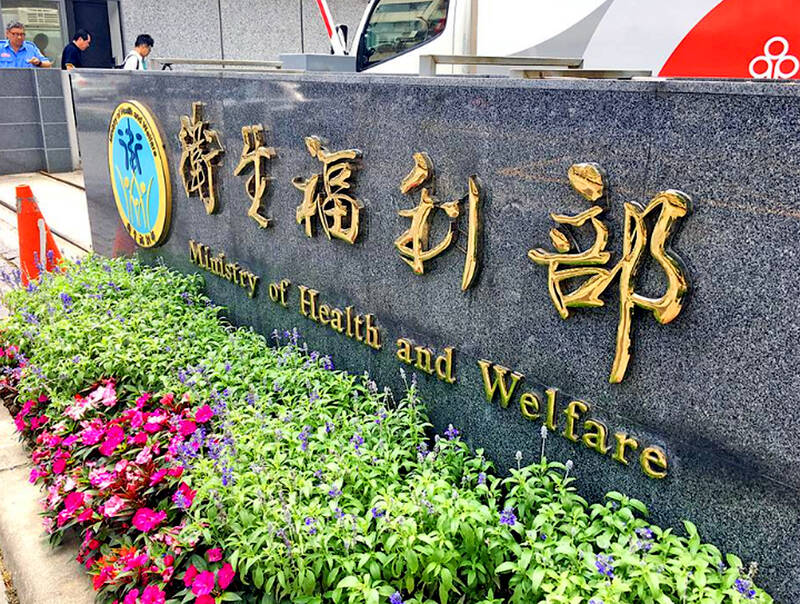The Ministry of Health and Welfare said it plans this year to propose amendments to the Public Assistance Act (社會救助法) to better reflect the number of people living in poverty.
About 2.2 million people who live below the poverty line have been sidelined by social welfare policies because they do not conform to the government’s definition of a low or middle-to-low-income household, civic groups say.
Homeless Taiwan Association member Wang Chin-wei (王今暐) said he last week determined the 2.2 million figure by looking at 2021 data, which showed that the median disposable income that year was NT$325,948.

Photo: Lin Hui-chin, Taipei Times
Sixty percent of that number is NT$195,569, which he said he used to determine the “poverty line.”
Twelve percent of the population, or about 2.8 million people, had annual incomes that were on average lower than the poverty line, Wang said.
Taking away the 600,000 people already registered as being in the low or middle-to-low-income bracket, 2.2 million people remained who did not qualify for help under the social welfare system, he said.
Compared with the UK, the US, Japan and South Korea, Taiwan’s definition of “poverty” is strict, and the government should review the eligibility of individuals for subsidies, he said.
Ministry of the Interior Lin Yu-chang (林右昌) agreed.
He said that “fringe groups” are being disqualified from being considered low-income because they own real estate, adding that the standards should be relaxed so that more people in need can receive benefits.
The Support Plan for Self-Use Housing Loans by Individuals Under Middle-Class was created to help people in mid-to-low income households who were affected by the COVID-19 pandemic take out loans to purchase a home, he said.
Like people who rent, mid-to-low-income groups also need government assistance, he added.
Department of Social Assistance and Social Work Director-General Su Chao-ju (蘇昭如) said that social problems are multifaceted and the Public Assistance Act is not the only way to address these issues.
The act is the foundation of many social welfare policies, and the ministry recognizes that it is past due for amendment, she said, adding that it is meeting with local governments and other agencies to solicit opinions.
Draft amendments should be created this year, she said.
Additional reporting by Lin Hsin-han

TRAGEDY STRIKES TAIPEI: The suspect died after falling off a building after he threw smoke grenades into Taipei Main Station and went on a killing spree in Zhongshan A 27-year-old suspect allegedly threw smoke grenades in Taipei Main Station and then proceeded to Zhongshan MRT Station in a random killing spree that resulted in the death of the suspect and two other civilians, and seven injured, including one in critical condition, as of press time last night. The suspect, identified as a man surnamed Chang Wen (張文), allegedly began the attack at Taipei Main Station, the Taipei Fire Department said, adding that it received a report at 5:24pm that smoke grenades had been thrown in the station. One man in his 50s was rushed to hospital after a cardiac arrest

SAFETY FIRST: Double the number of police were deployed at the Taipei Marathon, while other cities released plans to bolster public event safety Authorities across Taiwan have stepped up security measures ahead of Christmas and New Year events, following a knife and smoke bomb attack in Taipei on Friday that left four people dead and 11 injured. In a bid to prevent potential copycat incidents, police deployments have been expanded for large gatherings, transport hubs, and other crowded public spaces, according to official statements from police and city authorities. Taipei Mayor Chiang Wan-an (蔣萬安) said the city has “comprehensively raised security readiness” in crowded areas, increased police deployments with armed officers, and intensified patrols during weekends and nighttime hours. For large-scale events, security checkpoints and explosives

A car bomb killed a senior Russian general in southern Moscow yesterday morning, the latest high-profile army figure to be blown up in a blast that came just hours after Russian and Ukrainian delegates held separate talks in Miami on a plan to end the war. Kyiv has not commented on the incident, but Russian investigators said they were probing whether the blast was “linked” to “Ukrainian special forces.” The attack was similar to other assassinations of generals and pro-war figures that have either been claimed, or are widely believed to have been orchestrated, by Ukraine. Russian Lieutenant General Fanil Sarvarov, 56, head

PUBLIC SAFETY: The premier said that security would be tightened in transport hubs, while President Lai commended the public for their bravery The government is to deploy more police, including rapid response units, in crowded public areas to ensure a swift response to any threats, President William Lai (賴清德) said yesterday after a knife attack killed three people and injured 11 in Taipei the previous day. Lai made the remarks following a briefing by the National Police Agency on the progress of the investigation, saying that the attack underscored the importance of cooperation in public security between the central and local governments. The attack unfolded in the early evening on Friday around Taipei Main Station’s M7 exit and later near the Taipei MRT’s Zhongshan